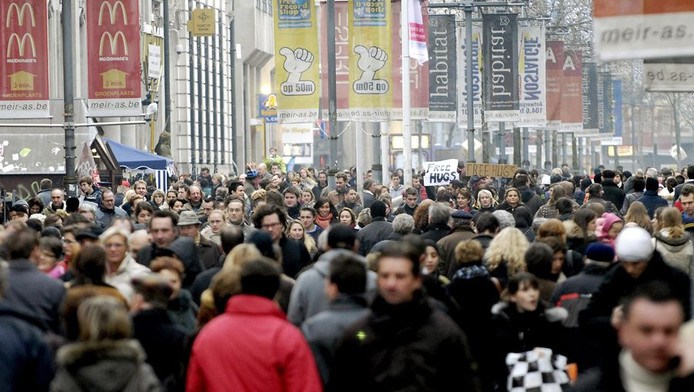Over the course of 30 years, the percentage of Flemish people of non-European descent has increased fivefold.
In 1990, 2.5% of the population in Flanders was of non-European descent. Almost thirty years later, in 2019, that number has gone up to 12.7%, according to figures from the 'Provincies in Cijfers' database, reports De Tijd.
The figures include people with a nationality from a non-European country as well as people with at least one parent who has or had a non-European nationality while living in Belgium.
The rising trend can be seen across all of Flanders, but is most prominent in the cities.
In the city of Antwerp, for example, the percentage of people with a non-European background went from 8.3% in 1990 to 36.5% in 2019, reports De Tijd.
In the thirteen Flemish 'centrumsteden' (cities, with a high number of inhabitants in relation to their surroundings, that have a central function in terms of employment, care, education, culture and leisure) Aalst, Antwerp, Bruges, Genk, Ghent, Hasselt, Kortrijk, Leuven, Mechelen, Ostend, Roeselare, Sint-Niklaas and Turnhout, the percentage went up from 4.2% to 20.2%.
However, the figures do not imply only a shift from the countryside to the cities, but also an increase in the percentage of inhabitants of non-European origin in the rural municipalities.
In 1990, less than 1% of the rural population came from outside of Europe, compared to roughly 5% in 2019, reports Het Laatste Nieuws.
The numbers come after Walter De Donder, chairman candidate for the Flemish centrist CD&V party, caused a stir in Flemish politics after a video of one of his speeches, in which he spoke about neighbourhoods in Antwerp and Brussels that "are completely depopulated of our own people", went viral on Twitter.
Maïthé Chini
The Brussels Times

